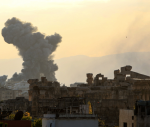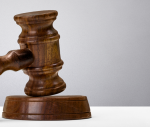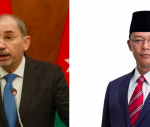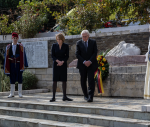You are here
15 years after the terrorist attacks of September 11
Sep 11,2015 - Last updated at Sep 11,2015
The terrorist attack of September 11, 2001, that targeted the World Trade Centre in New York City, and the Pentagon in Arlington, Virginia, awakened the entire world to the absolute horror of mega-terrorism.
Those were the most barbarous acts committed against the US since December 7, 1941, the attack on Pearl Harbour, “a day that will live in infamy”, as said by then president Franklin D. Roosevelt to a joint session of Congress one day after the attack.
The assault on America was massive, unimaginable and unprecedented. Several thousand innocent people fell victim to terrorism.
The horrid terrorist attacks were immediately recognised by the vast majority of the world community as vicious. They were evil acts against civilisation, freedom and, most of all, humanity.
Such actions contravene all sensible religious and human values.
In the weeks after the September tragedy, we saw people in leading positions with significant responsibilities, regardless of colour or religion, not only denouncing and condemning terrorism, but also fighting this evil to eliminate it from the face of the earth.
We now know that the possibility of more catastrophic terrorist acts, including the use of weapons of mass destruction, is there, and we must be prepared.
We must deny potential terrorists access to technology and any evildoer must be held accountable for his crimes.
What happened on September 11, 2001, concerns the entire world.
Scientists and physicians are committed to helping mankind; they need the moral voice of every nation and have the duty to speak out on this important issue. They should be at the forefront of the efforts to protect mankind’s health and life.
We must stay alert and have the expertise to deal with any crisis. We must ensure that the message of hope and our responsibility towards humanity and future generations continues.
We must also stay committed to promoting knowledge, developing scientific research, continuing education and solving thecommunity’s health problems, as all of this will contribute to building stable and solid societies and ensure that tragedies like September 11 do not occur again.
After the atrocities of September 11, Jordan, which has an established reputation for moderation and stability, and has itself been a target of terrorists, immediately condemned the attacks against innocent people and confirmed its support for the international coalition against terrorism.
His Majesty King Abdullah has been vocal in denouncing terrorism on the international scene and moved swiftly to join the fight against this phenomenon.
He was the first Arab and Muslim leader to foresee that the world’s realities would change after September 11.
He launched a campaign to highlight the true face of Islam in the wake of the terrorist attacks, and was constantly conveying the genuine religious principles of Islam, pointing out that this monotheistic religion of peace, tolerance and equality had been “hijacked” by the perpetrators of the September 11 events.
In its international humanitarian efforts of peacekeeping around the world, Jordan was the first, and only Arab and Islamic country to deploy a medical mission to Mazzar i Sharif in Afghanistan.
Over a period of six months, the Jordan Armed Forces-Arab Army Medical Services team, composed of 400 army personnel of physicians, nursing and technical teams, treated almost 48,000 patients.
This mission is indicative of Jordan’s commitment to assist all people who suffered from and were victims of the scourge of terrorism.
Jordan has field hospitals with medical, nursing and technical staff in almost 12 countries around the world. They work under the umbrella of the UN peacekeeping forces.
Jordan also joined the international and Arab Gulf coalitions in the war against terrorism — in Syria, Iraq and Yemen.
Terrorism has, unfortunately, spread wide, led by Al Qaeda and its more lethal offshoot, Daesh.
One can only hope that sanity and peace will win in the end.
The writer is a consultant physician in Amman. He contributed this article to The Jordan Times.













